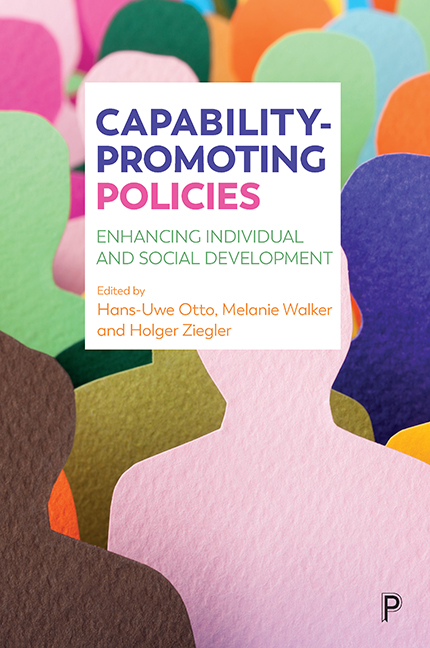Three - The capability approach, agency and sustainable development
Published online by Cambridge University Press: 12 April 2022
Summary
Introduction
For the past 15 years, there has been a coordinated effort by the international community to track countries’ progress for addressing extreme poverty, disease, lack of adequate shelter, and exclusion while promoting gender equality, education and environmental sustainability, in a quantifiable manner or ‘target’ as framed by the Millennium Declaration Goals – MDGs. However millions of people have been left behind by such ‘progress’. Many live in entrenched poverty, rising inequality and face discrimination. This is exacerbated when looking at marginalised groups: the old, people with disabilities, ethnic and religious minorities, and in particular women and girls, and sexual minorities (Stuart et al, 2015).
In September 2015, the High-level Political Forum on Sustainable Development adopted the 2030 Agenda for Sustainable Development, which includes a set of 17 Sustainable Development Goals (SDGs) to end poverty, fight inequality and injustice and tackle climate change by 2030. Thus the SDGs, under the umbrella tenet ‘leave no-one behind’, put social justice and equity at the heart of the wider agenda for eradicating extreme poverty (UNDP, 2016). To achieve this, there is a need to assess the progress in the circumstances of disadvantaged groups, but most importantly to ensure that disadvantaged groups are not passive actors of ‘change’.
In development policy and practice, community development programmes have arguably caught on to the importance of ‘participatory’ approaches to varying degrees (see Chambers, 1977). Nevertheless, while the SDGs allude to the empowerment of girls and women, they do not explicitly refer to purposive agency, democratic practices and authentic self-determination more generally. This was a critique of the MDGs, and some commentators have argued that the lack of attention given to agency has limited their success. The seriousness of the omission of agency from the MDGs is illustrated by the observation that the goals could be achieved even if the entire world's poor were put in gaol, which challenges the dramatic neglect of the poor's freedom (Alkire and Deneulin, 2006).
From a capability perspective, agency is important and should be central to all processes of development (Sen 1999; Alkire 2002; Nussbaum 2011).
- Type
- Chapter
- Information
- Capability-Promoting PoliciesEnhancing Individual and Social Development, pp. 43 - 62Publisher: Bristol University PressPrint publication year: 2017



